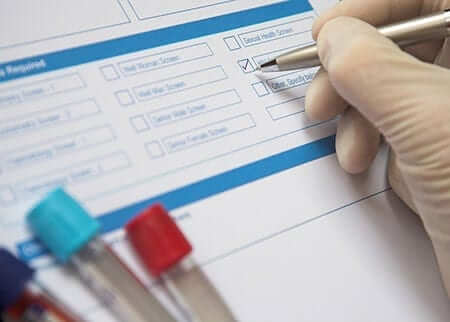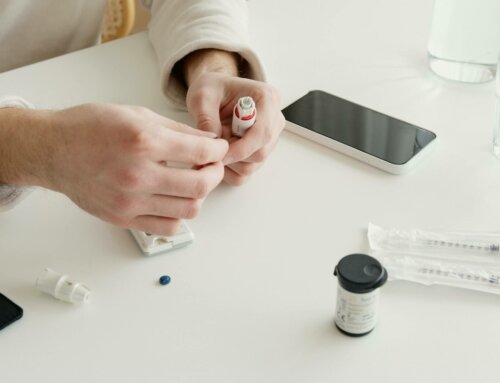It is essential for people with type 1 diabetes to be aware of their blood sugar levels to avoid further complications. Certain blood tests are recommended for people with type 1 diabetes to help them gain greater control over blood sugar spikes. Find out more about these blood tests and what they mean to you.
- Usually every 3 months the doctor will order a hemoglobin (A1C) test. This test measures the percentage of blood sugar attached to hemoglobin, the protein in your red blood cells that carries oxygen. If your A1C level is 6.5 percent or higher with a fasting blood sugar of 126 it indicates you have diabetes. When you are diagnosed with type 1 diabetes, you will have your A1C levels checked during regular 3 month doctor appointments. While results are based on age and other factors, it is recommended A1C levels stay below 7 percent to help limit future complications.
- Various conditions may make the A1C test inaccurate. If you have hemoglobin variant or are pregnant it may make the A1C inaccurate. Having anemia or sickle cell disease may give inaccurate results on an A1C test. Instead of relying on an A1C test the doctor may order a blood sample taken at a random time. It does not matter if you have eaten. If the level of the plasma glucose test is 200 mg/dl or higher, it could indicate that you have diabetes.
- Another blood test used during type 1 exams is the fasting blood sugar test. After fasting overnight for 8-12 hours a blood sample is drawn. If the result is 126 mg/dl or higher on two different tests you would be considered to have diabetes.
- Once a preliminary diagnosis of diabetes is made, additional blood tests are run to check for auto antibodies that are common in people with type 1 diabetes. These tests will reveal if you have type 1 or 2 diabetes. A urine test may also be done to look for ketones, which are byproducts from breaking down fat. If ketones are present in the urine it generally suggests the patient has type 1 diabetes.
- A C- peptide test is often done to determine whether a patient has diabetes type 1; the test measures the level of C-peptide in the blood. The level of C-peptide can reveal how much insulin is being made by the pancreas. A person with type 1 diabetes does not produce insulin. The C-peptide test would reveal a low level of C-peptide and insulin. The test may also be used to look for causes of low blood sugar or hypoglycemia. You may be told to fast prior to this blood test. You might also be advised to stop taking any oral medications and insulin before the test since they may affect the test results.
- Thyroid problems are also common for people with type 1 diabetes. Every year your doctor may recommend a thyroid-stimulating hormone (TSH) blood test to check for thyroid issues. There are some symptoms of thyroid disease which may mimic symptoms of diabetes so each condition should be ruled out.
- Other blood studies that might be done include a fructosamine test to examine the chemical reaction of glucose with plasma protein. This test sees the level of glucose control for the past 1-3 weeks. It is often done when the A1C is inaccurate due to other medical conditions. A white blood cell (WBC) might be done to rule out infection. A complete blood count or CBC is done at least yearly or if a problem is detected with your red blood cells or platelets.
- A lipid profile blood test including total cholesterol, HDL, LDL, and triglycerides will be taken. Often people with diabetes will have elevated LDL and triglyceride levels which may be treated with oral medications. Diabetes is a leading cause of heart disease and these values must be monitored to reduce the risk.
- Kidney blood tests including a GFR, creatinine and BUN will be taken to evaluate your kidney function. Diabetes is one of the leading causes of kidney disease and reduced kidney function and must be monitored often.
- Beyond the blood tests done in a medical environment, people with diabetes type 1 are typically advised to use blood glucose meters at home to check blood sugar levels throughout the day. The results are recorded and shared with the doctor during exams. They help you and your health care team look for certain patterns and create the best possible diabetes self-management plan for you.
Blood tests are a crucial part of staying healthy when you have diabetes type 1. It is necessary to determine your blood sugar levels and detect certain patterns that can affect them. Once you understand why these tests are being done, you will grow accustomed to them; they simply become a regular part of your health care regime.













Leave A Comment